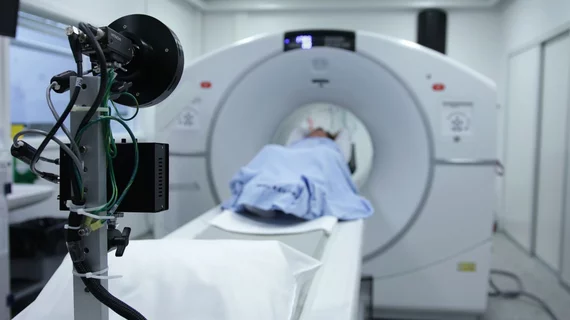Better neuroimaging guidelines could save practices millions, research shows
Overuse of expensive neuroimaging for patients who present to emergency departments with dizziness could be spared by utilizing guideline concordant imaging when those same individuals are seen in outpatient settings.
That’s according to new research published in JAMA Otolaryngol Head Neck Surgery that examined the prevalence and cost of neuroimaging for dizziness in multiple care settings. More than 800,000 Medicare claims involving dizziness as a symptom of concern were calculated to have cost more than $88 million in neuroimaging spending, according to the research. To reduce these costs, experts involved in the study suggested that appropriate triage and interventions must occur earlier in the patient care process to discourage discordant use of imaging studies.
“Overuse of costly neuroimaging technology is associated with low-value care for the prevalent symptom of dizziness,” Meredith E. Adams, MD, of the Department of Otolaryngology–Head and Neck Surgery at the University of Minnesota, and co-authors explained. “Although quality improvement initiatives have focused on the overuse of computed tomography scans in emergency departments, most patients with dizziness present to outpatient clinics.”
Researchers analyzed 805,454 commercial and Medicare Advantage claims on adults with a new diagnosis of dizziness that were submitted between Jan. 1, 2006, through Dec. 31, 2015. The types of imaging—CT, MRI, angiography, etc.—were compared to associated costs, settings and sociodemographic characteristics.
Within 6 months of presentation (35% to the ED and 15% to outpatient clinics), 20% of individuals completed some form of neuroimaging. Those who were seen in emergency departments received exams within 0-2 days and outpatients were scanned within 10 days. Out of the 156,969 neuroimaging exams, head CT scans were the most prevalently requested study, with 92% of patients undergoing the exam on presentation date and 47% completing it within six months of their first complaint of dizziness.
Although CT was by far the most commonly ordered exam, MRI (accounting for 25% of completed imaging within six months of presentation) was responsible for 70% of all neuroimaging spending. The modality tallied nearly $62 million in spending compared to $17 million on CT. Per test costs ranged from $43.21 to $68.97 for CT of the head, and from $319.63 to $362.02 for MRI of the brain, orbit, face and neck.
“To inform practice and policy, a comprehensive understanding of the uses and costs of neuroimaging across settings and episodes of care is needed,” the authors wrote. “Interventions to optimize the use of neuroimaging must occur early in the patient care journey to discourage guideline-discordant use of CT scans, advocate for judicious MRI use (particularly in ambulatory settings), and account for the effects of price transparency.”
Related neuroimaging content:
Researchers use MRI scans to develop a growth chart specific to the human brain
MRI scans pinpoint root of lingering concussion symptoms
MRI findings associated with poor thrombectomy outcomes after stroke
PET scans spot brain abnormalities in long COVID patients
'Pandemic brain': PET/MRI images reveal how COVID's impact is felt by non-infected individuals

